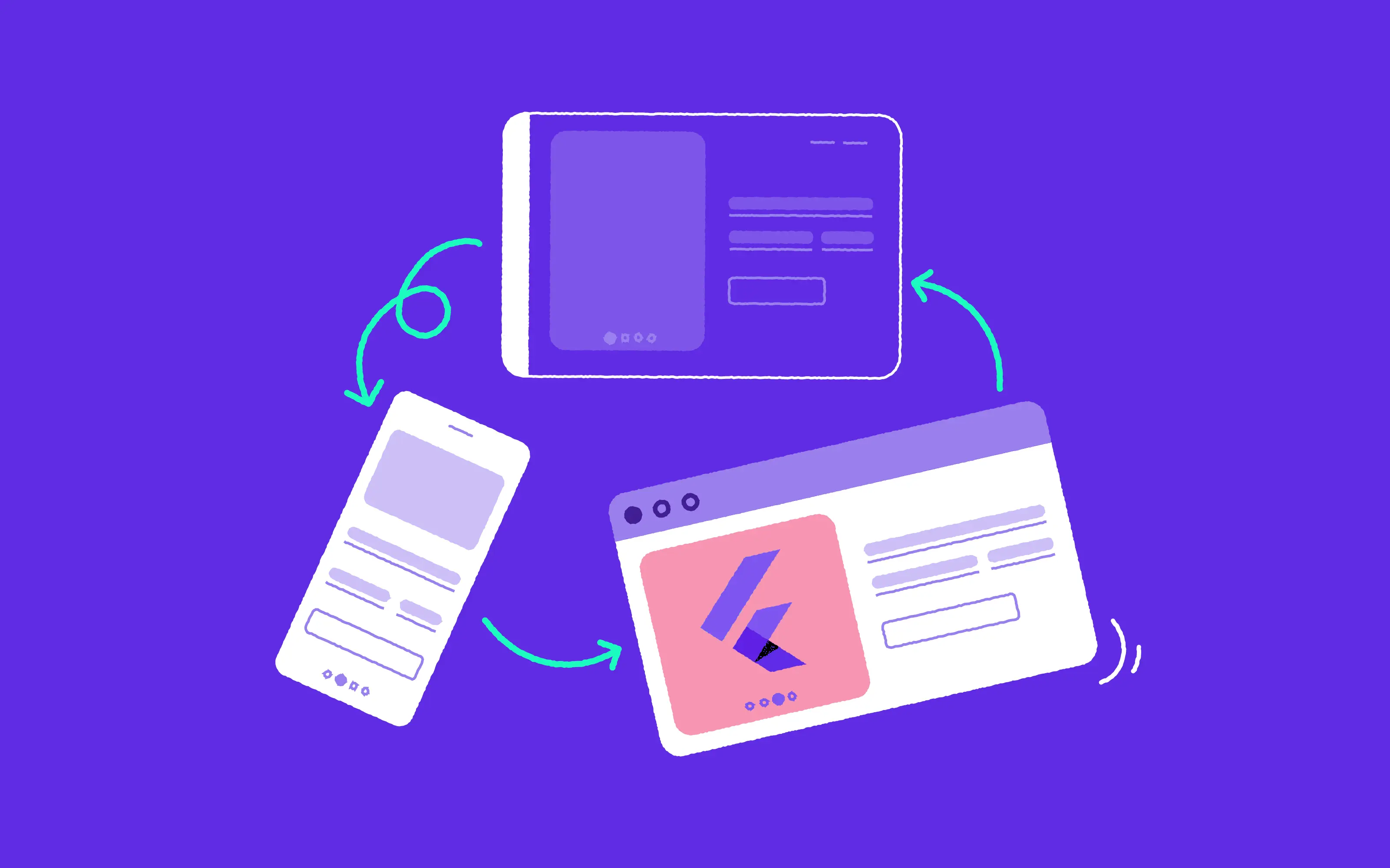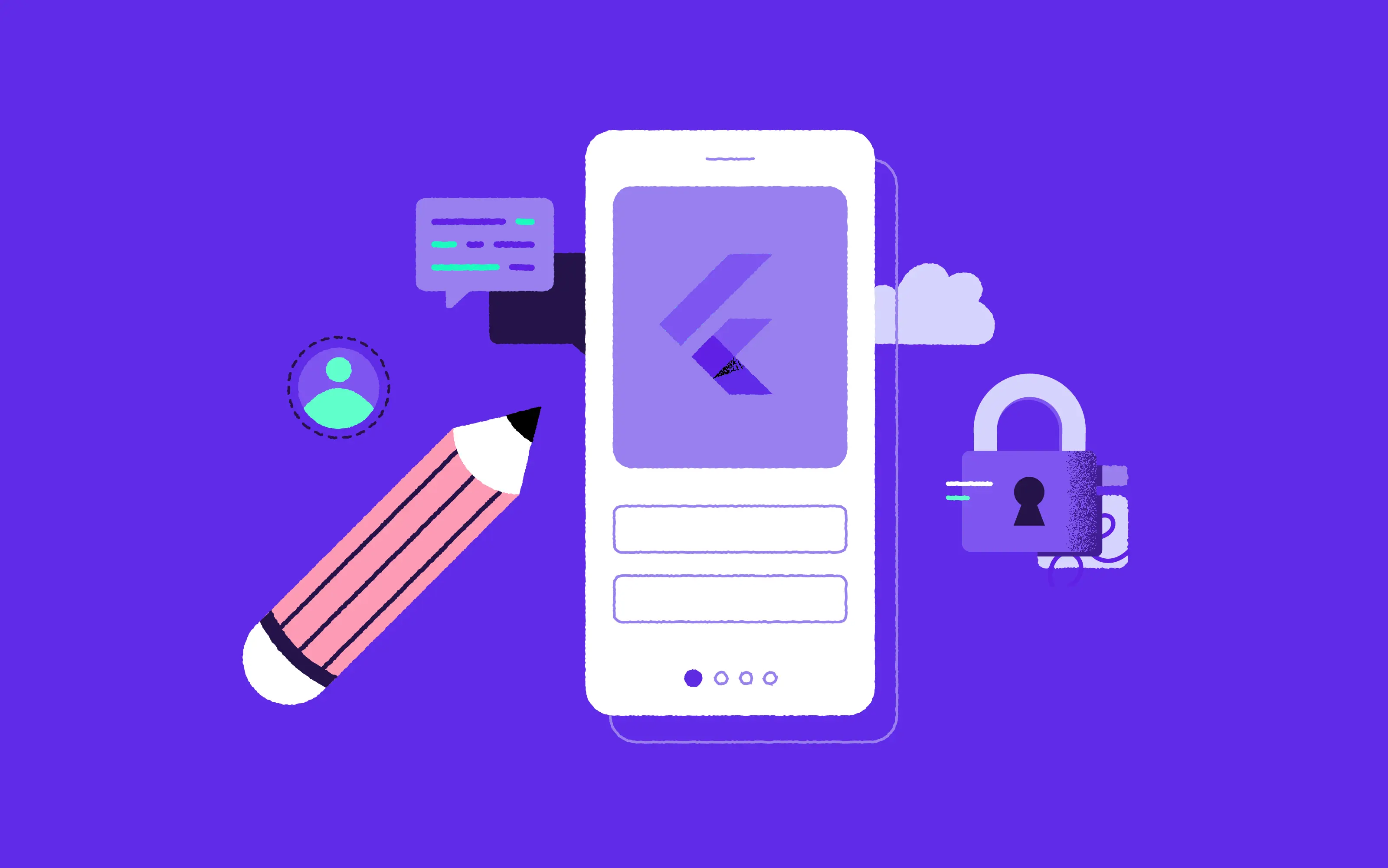
Applications built on Flutter can perform great, look wonderful, and the language used by this framework is relatively easy to learn. No wonder it is one of the most popular solutions to adopt at any company. But Flutter can become a real powerhouse for companies that aim for scale. It's thanks to the possibility of outstanding cross-platform development it provides. How can this feature be beneficial to your business?
The facts: get streamlined app development
- Flutter is a cross-platform solution. It is associated mainly with mobile (iOS and Android), but applications written in Flutter can also be launched for web, as well as macOS, Windows and Linux (the last three are referred to as Beta for now).
- It's not like you have the same code and run it on every platform. Some changes still need to be made. It's mostly regarding the UI customization. But that's still 10% of the work anyway, not everything all over again.
- Flutter offers simplified coding in Dart, faster app development process with the hot reload function, high performance through its own Skia graphics engine, and widgets that emulate native functionalities. Those make it a near-perfect tool for product designers.
The advantages: Flutter as a cross-platform framework
There are many. Let's look at the most important.
One code that runs on multiple platforms
This is the most important advantage. As, for instance, React and ReactNative can only share some components - specifically the business logic, which is probably about a third of the entire application - in Flutter the code probably will be around 90% the same for different platforms.
Related to the above, thanks to the fact that we only make one application, we can have a much smaller team. And this saves costs. A company might involve, for example, 2 mobile iOS developers, 2 mobile Android developers, and 2 web developers for the same version of the app, while the number of developers needed to prepare the application for all these platforms in Flutter would be less than 2/3.
And one more thing related to the single-source code: one code means fewer potential errors and a higher probability of a synchronized release. Regarding the second point, I witnessed a situation when the writing of native apps for iOS and Android in the same project was completed at different pace (different holidays, different level of complexity between platforms, different level of experience, etc.), which made it difficult to synchronize the release on both platforms. With one code, this problem is almost eliminated.
Easily switch from one platform to another
If you have an existing web application in React, making a mobile application will be equal to writing it from scratch. In Flutter, we can easily take an existing solution and adapt it to different platforms (e.g. from web to mobile and vice versa). And here's an important note: companies think of it as an opportunity. Our clients would first want a website made in Flutter because they had planned to later turn it into a mobile application, or vice versa. Of course, this will probably require customization of the designs, but it's still a tremendously less amount of work to be done. No wonder that startups, scaleups and enterprises alike choose Flutter for realization of their projects.
Flutter vs. Electron
I can tell that a desktop application in Flutter will perform better than a similar one made with Electron. Many applications, such as Slack, are web applications thrown into a desktop wrapper (Electron). This technology has greatly improved, and such made applications are often indistinguishable from desktop applications, but underneath they still use a browser to display content. Flutter, on the other hand, receives only a canvas from the system, and similarly to games, it draws its components by itself. The lack of browser overhead allows it to achieve a stable 60/120 fps. Something definitely not to be overlooked.

Pros and Cons (depending on how you look at it)
The success of cross-platform app development can depend on development framework. But personal preferences and experience also play a role. This means mobile apps can and will be well-off written in native frameworks too, and more than that, companies can optimize such processes to meet their business goals.
For instance, Flutter promotes Material Design which is a Design System not tied to any platform. It is most often used in Google services (Android, all their web services) but thanks to this the application can look similar regardless of the platform on which it is launched. The downside is that it then doesn't look native. On the other hand, there are components (called Widgets) available that make Flutter apps look like native (i.e. Cupertino package, FluentUI package, etc).
Disadvantages. Why would app developers not love Flutter?
Software development may seem like a curse of abundance. There are many competitive frameworks and competitive programming languages to choose from, each having their strengths and weaknesses. The choice can and probably will come at the price of compromise. How is it with Flutter?
- It's not a one-size-fits-all solution. For example, Flutter Web is average for a knowledge page such as Wikipedia (it takes too long to load initially), Flutter Web is also not tremendously SEO friendly either (there is no HTML that browsers can parse).
- The number of available libraries is not the same on mobile, desktop and web. There are libraries that were written only for mobile, there are also those that cannot be accessed due to web limitations. Fortunately, we can always add a native function in a native language if no one has prepared it for Flutter yet.
- Unfortunately, Flutter applications take longer to start than the native ones. At startup, additional Flutter-related items must be loaded. This is probably the most visible on the web, where the Flutter application starts in about 5 seconds (the packages weigh a bit).
Conclusion
Considering the benefits and despite the drawbacks, Flutter is one of the best app development frameworks. Whether it's Android and iOS, web development, or desktop apps that we have in mind, our next steps will be easier and cheaper with this application development framework. Popular cross-platform solution as it is, there is no overplaying the role it can play for our business.



